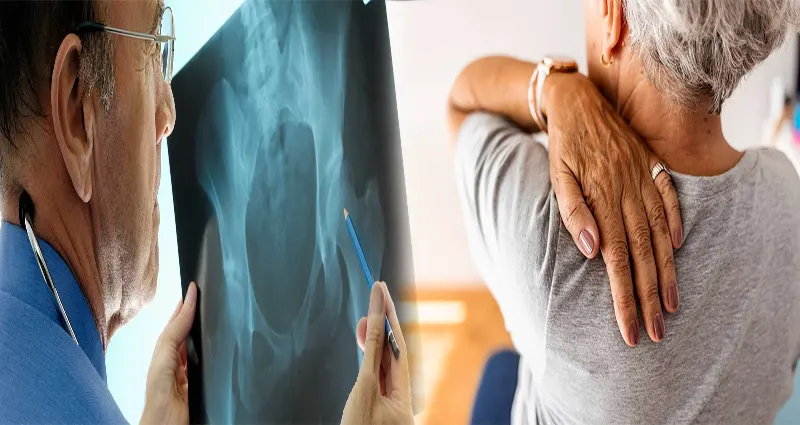Osteoporosis is a condition characterized by reduced bone density and weakened bones, making them more susceptible to fractures. While osteoporosis is often associated with older age, it can start developing much earlier, including in women over 40. Recognizing the early signs of osteoporosis is crucial for early intervention and management. In this article, we will explore some of the key indicators that women over 40 should be aware of.
Height Loss:
One of the early signs of osteoporosis is a gradual loss of height. As bones weaken and compress, individuals may notice a decrease in their height, especially noticeable when measured over time.
Change in Posture:
Osteoporosis can lead to changes in posture, such as a stooped or hunched appearance. This is often caused by fractures in the vertebrae due to weakened bones.
Fractures with Minimal Trauma:
Women over 40 with osteoporosis may experience fractures with minimal or no trauma. A simple fall or even a minor bump can result in a fracture, particularly in areas like the hip, wrist, or spine.
Bone Pain:
Pain in the bones, particularly in the back or hips, can be an early sign of osteoporosis. This pain may worsen with physical activity or when lifting objects.
Brittle Nails and Hair Loss:
Osteoporosis can also affect the health of nails and hair. Women over 40 may notice that their nails become more brittle and prone to breaking, while hair may become thin and brittle as well.
Receding Gums and Tooth Loss:
Osteoporosis can impact dental health, leading to receding gums and an increased risk of tooth loss. Women over 40 may notice these changes as early signs of bone density loss.
Decline in Grip Strength:
A decline in grip strength can also indicate early signs of osteoporosis. Weakened bones and reduced bone density can affect muscle strength, including grip strength.
It is important for women over 40 to be proactive about their bone health and pay attention to these early signs of osteoporosis. If any of these symptoms are present, it is advisable to consult a healthcare provider for a bone density test and further evaluation. Early detection and intervention can help prevent further bone loss and reduce the risk of fractures in the future.
Women over 40 should be vigilant about monitoring their bone health and recognizing the early signs of osteoporosis. By staying informed and proactive, individuals can take steps to manage and potentially prevent the progression of this condition, leading to better bone health and overall well-being.










